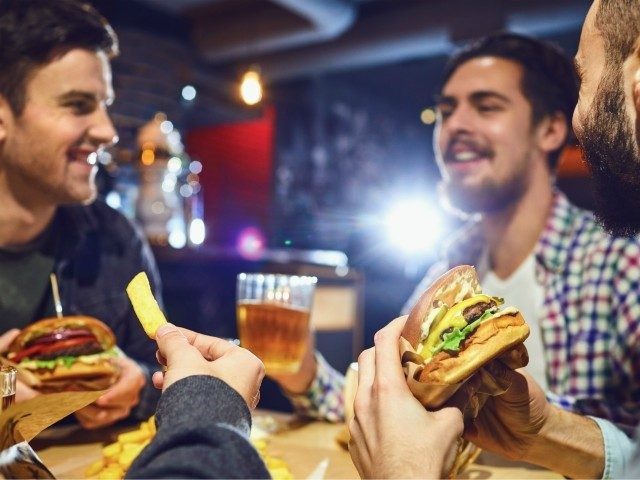A report by a centre created by the Conservative administration has said that Britons must decrease their meat and dairy consumption by up to 50 per cent in order for the country to hit the government’s pledge for the UK to go carbon neutral by 2050.
The report by Catapult Energy Systems released on Tuesday is even more drastic than the government’s Committee on Climate Change’s January recommendation that citizens cut their meat and dairy consumption by one-fifth.
Catapult Energy Systems advised in its report Innovating to Net Zero that the UK must increase the number of wind farms, introduce more solar power and hydrogen power, and build around 20 “small modular nuclear” reactors to support three-quarters of heating in cities. There would also have to be increased development of carbon capture and storage systems, land for livestock production must be slashed in half, and there must be an increase in harvesting biomass crops.
However, even if all of the systems recommended are employed at full capacity, the UK could only hit the target in 30 years’ time if Britons accepted drastic changes to their lifestyles. Meat and dairy consumption “may need to be cut by up to 50 per cent… depending on the success of low carbon deployment”. Britons would also have to curtail their air travel.
“Net Zero before 2050 is unlikely without highly speculative changes to lifestyle, land use and low carbon technologies – such as banning aviation and meat production,” CES said. The body, which was created by the government to fast-track the UK’s transition to a greener profile, remarked in the report that Britons were “more resistant and emotional” when told to drastically alter their diets, demanding that whilst these recommendations may be unpopular, it was one of “two key lifestyle changes [that] will need to be achieved”.
Delingpole: Net Zero Is the New Remain and It Will Destroy Boris’s Conservatives https://t.co/qDHBT9t1bX
— Breitbart London (@BreitbartLondon) March 6, 2020
Noticing that people do not want to make changes that make their lives worse, the report said: “Early evidence suggests a general willingness to adopt new technologies (such as new heating or mobility) as long as these can deliver the same experiences as before. Conversely, approaching the subject of dietary change or aviation often elicits a more resistant and emotional response.”
It was under the leadership of the centrist and notionally conservative Theresa May that the UK became the first major economy to pledge to go net zero carbon emissions by a specified date. Right-wingers in the Conservative Party and those in the conservative movement have been disappointed to find that Prime Minister Boris Johnson — while hitherto a sound Brexiteer — has not rowed back on the extreme pro-green policies of his predecessor, but has instead pushed forward with policies which one report warns could cost £3 trillion.
There is growing concern over Wednesday’s budget which will reportedly drop the fuel duty freeze, resulting in a rise of 2p per litre for petrol and diesel. This burden would be particularly felt by the working class — those that lent the Conservatives their votes in December 2019, handing Johnson an 80-seat majority — with MPs warning against laying the burdens of environmentalism “on the backs of working people”.
Robert Halfon, leading the MPs in their opposition to dropping the tax freeze, said: “Boris Johnson said during the election that there were no plans to raise fuel duty because he understood it has such a huge impact on people on low incomes. People trusted him on that.
“This Government isn’t just about Brexit, it’s about being the workers’ party. It doesn’t matter whether you’re blue collar or white collar — everyone will face the hit of a fuel duty rise.”
Delingpole: Eco-Loon Boris’s £3 Trillion Net-Zero Scheme Will Bankrupt Britain, Reports Warn https://t.co/brU6EpqJ1s
— Breitbart London (@BreitbartLondon) February 24, 2020

COMMENTS
Please let us know if you're having issues with commenting.